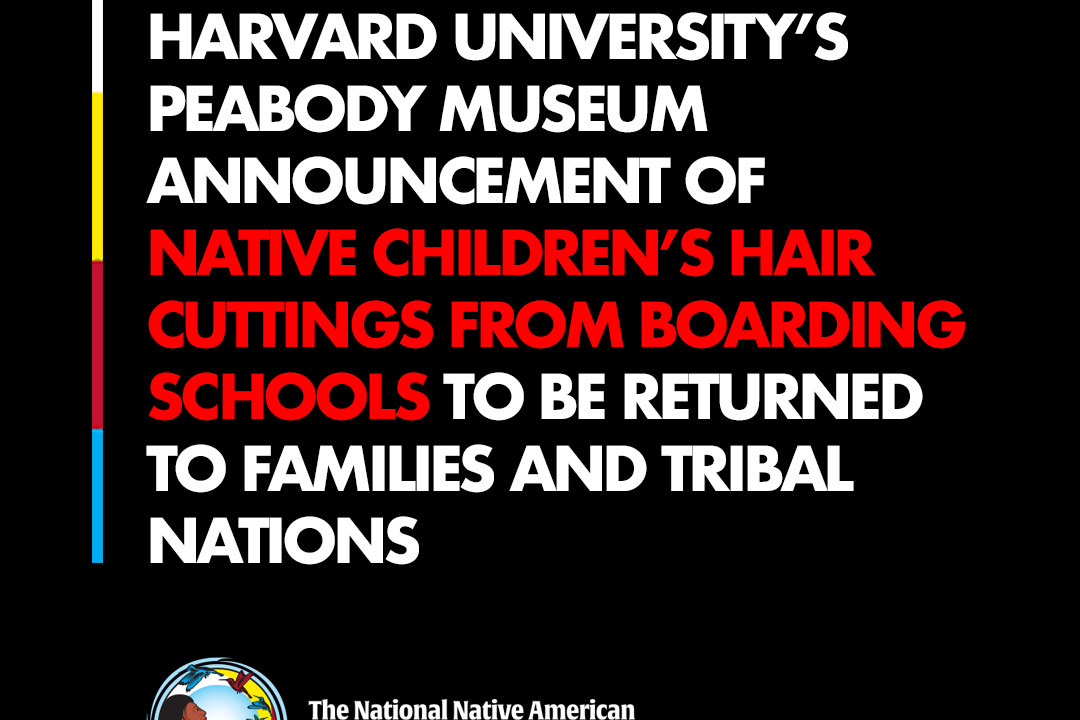
MINNEAPOLIS, MN.- We join our relatives in grief over the disturbing revelation from Harvard University’s Peabody Museum, indicating their possession of hair cuttings from hundreds of Native children who attended boarding schools between 1930 and 1933. We have learned that these materials consist of hair taken from nearly 700 children, most of whom have been documented with their names and Tribal affiliation.
Though teachings vary across Tribal Nations, the significance of hair to Indigenous people’s has always been a deeply sacred one. This, of course, was also known to Indian boarding school administrators who systematically cut the hair of Native children upon processing and enrollment, which makes the hair cuttings held at Harvard’s Peabody Museum deeply complex and utterly horrific to even consider.
According to their statement, “The Peabody Museum is fully committed to the return of hair back to families and Tribal Nations. The first phase of fulfilling this commitment includes communication with Tribal Nations. The museum is not releasing details of the individuals at this time, however, this information is being shared with Tribal leaders. The second phase, a process for returns, is currently being developed.”
In this difficult time, we are yet again reminded of the racist and colonial history that has directly benefited institutions such as Harvard University. While we recognize that the Peabody Museum’s apology and commitment to returning these materials back to their relatives and Tribal Nations is an essential first step, we need to see meaningful, urgent, and ongoing responses to the extractive and dehumanizing collections practices so commonly seen in anthropological, archaeological, and museum sciences. This situation brings to light the necessity for foundational reconsideration, not only for how archaeological and museum sciences are conducted, but also how crises such as this can be addressed by the complicit institution with accountability and transparency. This is imperative, as we have seen previous failures from Harvard University regarding the repatriation of Native American human remains and funerary objects.
In our initial communications with the Harvard University Native American Program office, we have offered our support to Native students, Native faculty, and the surrounding community who have been deeply impacted by this news. We endeavor to continue this dialogue as details of the Peabody Museum’s return process are put into place.
We strongly urge Harvard University to take this moment to deepen their understanding and take accountability; to work with Tribes in good faith toward the return of all materials; to constructively engage this collective learning moment by educating the Harvard community about the impacts of Indian boarding schools and their role in it; to support the emotional, psychological, and spiritual well-being of Native students currently enrolled at Harvard University, and; to immediately address and prioritize the repatriation, pursuant to NAGPRA, of the remaining Ancestors and burial belongings still in their possession.
Dear relatives, please take care of yourselves in this difficult time. Be gentle with your spirit as heavy emotions that will likely come up as a result of hearing this news sits with you. We invite you to visit our Resources for Self-care and Trauma at: boardingschoolhealing.org/self-care-resources
